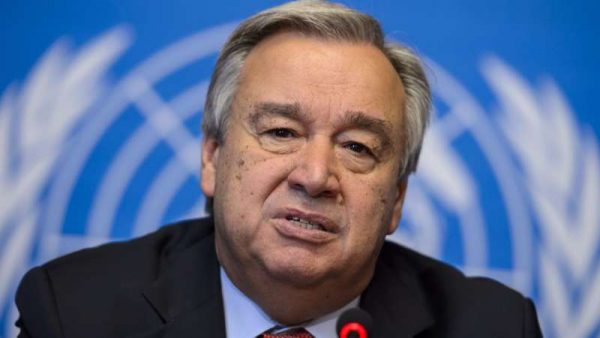United Nations-
In his 32nd semi-annual on the implementation of Security Council Resolution 1559, Secretary-General Antonio Guterres renewed his call for “urgent reforms,” an “end to corruption” and a “swift” formation of a government in Lebanon, Asharq el-Awsat reported on Saturday.

Guterres warned in his report that Hezbollah’s involvement in the Syrian war “poses risks to the stability of Lebanon and the region.” He urged “regional countries,” in reference to Iran, to “encourage” the transformation of Hezbollah into a “civil political party, and to disarm it.”
“It demonstrates the failure of Hezbollahto disarm and its refusal to be held accountable to the state institutions,” he said, calling on Hezbollah and other concerned parties “not to engage in any military activity inside or outside Lebanon.
Guterres also reiterated calls on Israel to “commit to its obligations under UN Security Council resolutions, and ro withdraw its forces from the northern part of Ghajar and an adjacent area north of the Blue Line.”
Guterres also urged “transparent and credible” investigation of the massive Beirut port explosion that fattened large parts of the capital last august ,
He also urged Lebanese authorities to carry out swift reforms and put an end to corruption.


Leave a Reply
You must be logged in to post a comment.